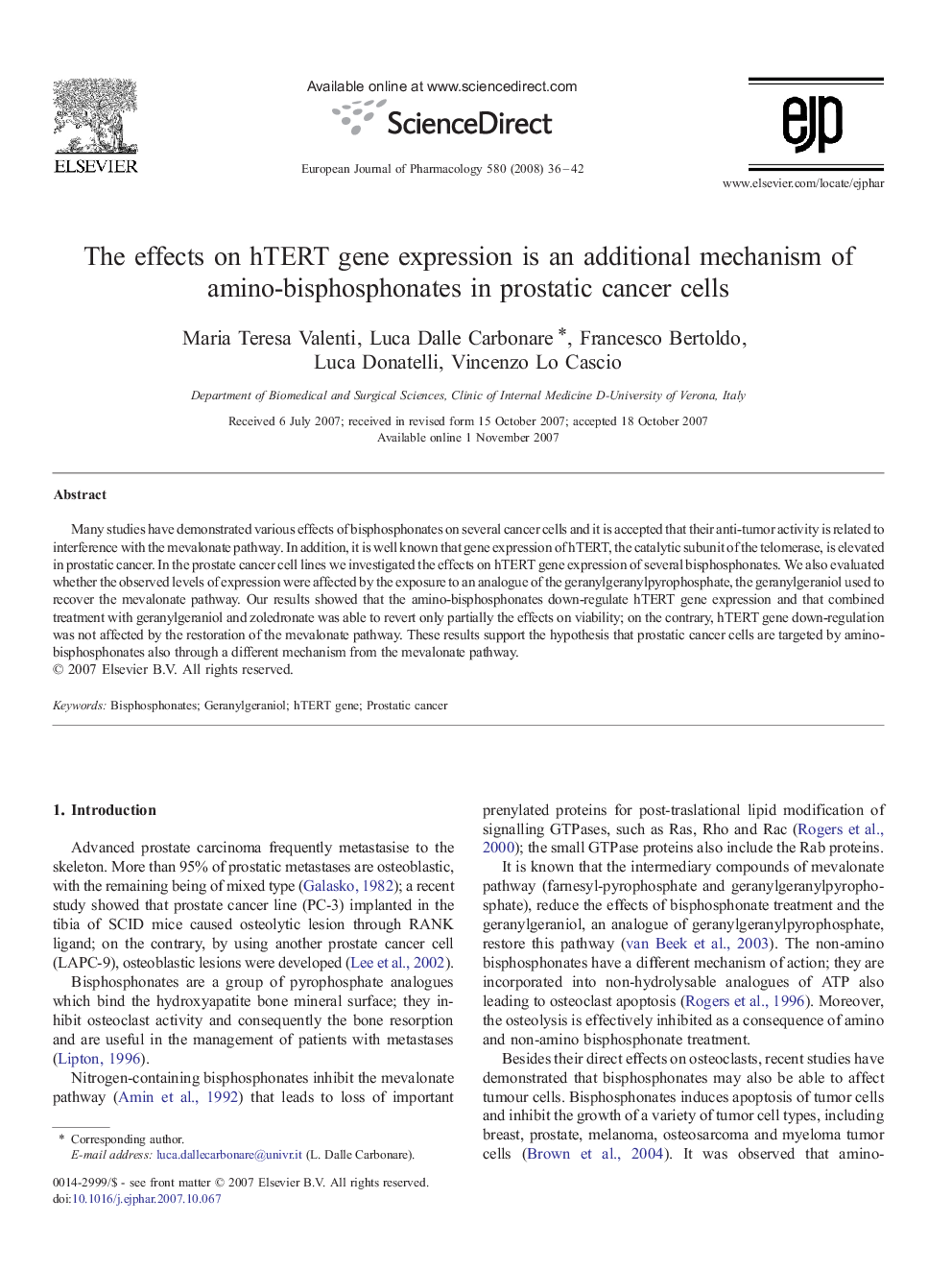| Article ID | Journal | Published Year | Pages | File Type |
|---|---|---|---|---|
| 2535628 | European Journal of Pharmacology | 2008 | 7 Pages |
Many studies have demonstrated various effects of bisphosphonates on several cancer cells and it is accepted that their anti-tumor activity is related to interference with the mevalonate pathway. In addition, it is well known that gene expression of hTERT, the catalytic subunit of the telomerase, is elevated in prostatic cancer. In the prostate cancer cell lines we investigated the effects on hTERT gene expression of several bisphosphonates. We also evaluated whether the observed levels of expression were affected by the exposure to an analogue of the geranylgeranylpyrophosphate, the geranylgeraniol used to recover the mevalonate pathway. Our results showed that the amino-bisphosphonates down-regulate hTERT gene expression and that combined treatment with geranylgeraniol and zoledronate was able to revert only partially the effects on viability; on the contrary, hTERT gene down-regulation was not affected by the restoration of the mevalonate pathway. These results support the hypothesis that prostatic cancer cells are targeted by amino-bisphosphonates also through a different mechanism from the mevalonate pathway.
